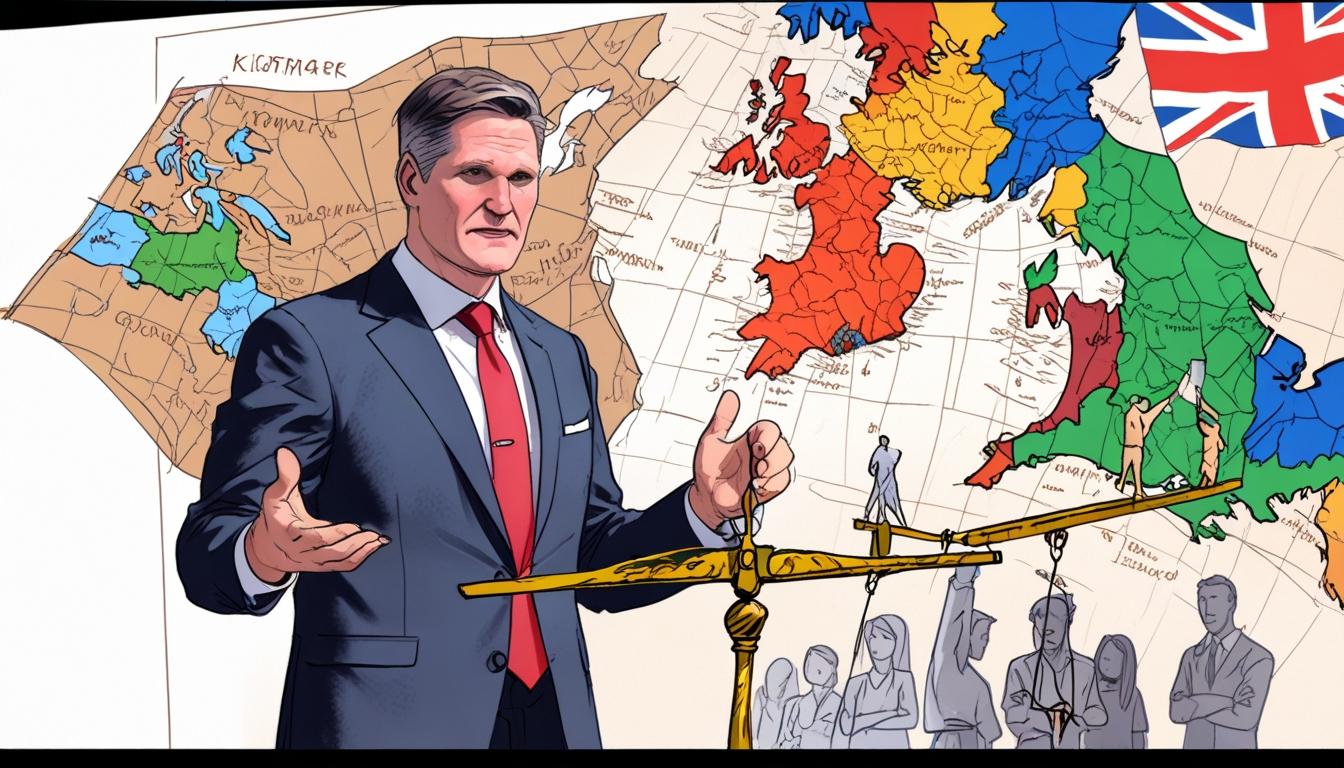The political landscape of immigration in the UK has taken a significant turn under Prime Minister Keir Starmer, whose recent announcements signal a marked departure from previous policies and a response to public sentiment. The issue of immigration has long been a contentious topic in British politics, representing both a major demographic shift and a perceived political failure to manage expectations and reality. From Tony Blair’s era of seemingly underestimated migration figures to Theresa May’s pledges of reducing net migration, successive governments have grappled with the complexities of immigration policy, often misaligned with the lived experiences of citizens.
The recent surge in net migration, reportedly reaching 900,000 in 2023 before a slight decline to 728,000 in 2024, has intensified demands for a more stringent approach. Starmer's rhetoric has reflected this urgency, famously commenting that "we risk becoming an island of strangers." These words resonate with many who feel a sense of alienation amid escalating immigration figures. Critics, primarily from the left, argue that such language is distasteful and fosters division, whereas proponents claim it reflects a necessary recognition of public anxiety around identity and national cohesion. Within this fraught backdrop, Labour's approach to immigration must address both political realities and practical necessities.
Importantly, Starmer’s proposed reforms indicate a deliberate shift towards prioritising high-skilled work while significantly narrowing the opportunities for lower-skilled migration. This approach is aimed at convincing voters that Labour aligns with their views, especially those who feel neglected by traditional political discourse. Yet, the implications of these reforms could resonate negatively across important sectors such as social care and education, which have become increasingly dependent on migrant labour. Reports highlight that the proposed measures—including extended residency requirements and the introduction of financial levies on universities—could exacerbate existing labour shortages and undermine economic growth.
Moreover, other perspectives within this dialogue underscore ethical concerns surrounding the exploitation of international students. Many UK universities have increasingly relied on international enrolment for financial sustainability, which poses risks for students who may be misled by unscrupulous recruitment practices. This reality begs questions not only about the integrity of the educational system but also about the ethical dimensions of immigration policies that seek to benefit from foreign students while simultaneously tightening entry conditions.
As Starmer navigates the political pressures exerted not only by members of his party but also by the right-leaning Reform UK party, which has capitalised on public unease regarding immigration, he faces the challenge of crafting a policy that balances public sentiment with economic realities. By framing recent immigration patterns as a "failed free market experiment," Starmer aims to challenge the narrative of open borders—a significant shift for a leader who previously opposed Brexit.
The pressures of an aging population and heightened demands on public services further complicate this issue. As the country grapples with what the future of immigration should be, critics caution against policies that risk alienating minorities and undercutting essential sectors reliant on migrant labour. In this evolving landscape, it remains to be seen whether the Labour government can successfully navigate the tricky path ahead, ensuring that economic needs are met without compromising social cohesion.
In conclusion, the discourse surrounding immigration in the UK is at a crossroads. Starmer’s administration must acknowledge the historical complexities and future implications of immigration policy while forging a path that resonates with a diverse electorate. The balance between addressing public anxieties and maintaining an economically viable immigration system will be essential as the government seeks to earn and ensure its long-term credibility.
Reference Map
- Paragraph 1: [1]
- Paragraph 2: [6]
- Paragraph 3: [2], [4]
- Paragraph 4: [5]
- Paragraph 5: [3]
- Paragraph 6: [7]
- Paragraph 7: [6]
Source: Noah Wire Services
